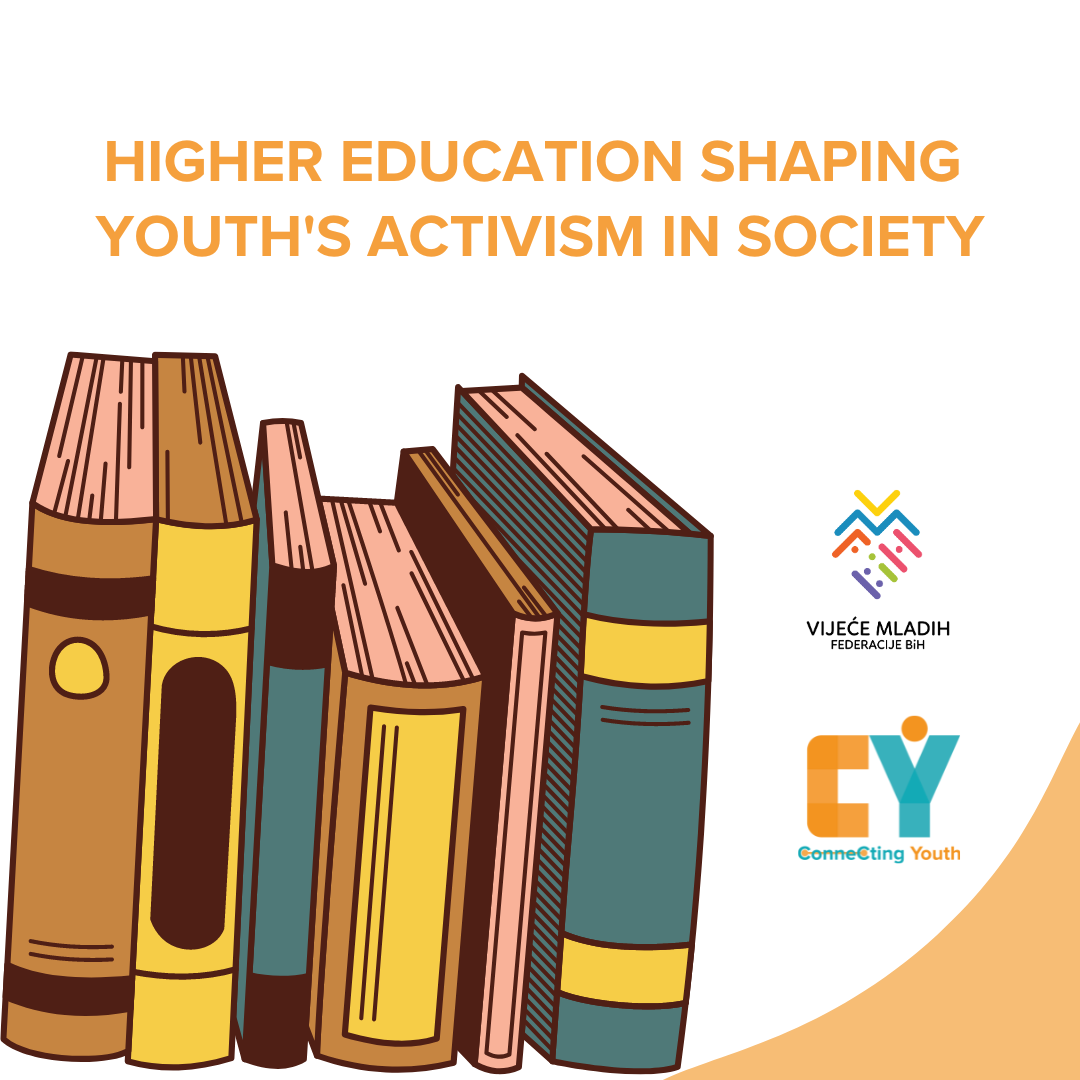31.08.2023

When talking with young people, one often gets the impression that the first encounter with activism for each of them was in completely different circumstances, especially periods of life. Young people are involved in the development of the community as much as the community allows them to do so. Here we are not talking exclusively about the existence of, say, a cultural and musical program for children and young people, or about the implementation of policies towards young people - we are talking about creating a space for young people that allows freedom of expression, reflection, action, and access. But how can the education system contribute to and encourage youth activism?
Activism is usually awakened in high school by students who, by participating in the work of non-governmental and similar youth organizations, were part of educational, but also volunteer actions or programs. And then there is a visible division among the students who are truly interested in activism in the community, and those who simply want an excuse to be absent from class. In both cases, young people benefit, but they don't understand it equally. However, going to college, and especially speaking from the perspective of a young person who left a small community to live in the capital city, I notice that the concept of participation in activist actions is changing by a large percentage. For example, former high school students who were formerly engaged in youth informal groups in the smaller communities they come from, now as students that attend their desired faculties are less and less interested in being part of youth informal groups.
On the other hand, however, what I have observed in a really large number of cases is that students who were not involved in activism during high school are far more engaged in university.
I believe that the key to that lies in the fact that these are students who have found completely new systems of organization and participation that are quite similar to the field they are studying. It is nice to build a society with democratic values in which each group of people fights for the rights of others and vice versa, but it is impossible to expect that every student will engage and contribute equally to their community.
Social science students, by default, came to the faculty with a more or less significant background of work in civil society organizations. However, this is not necessarily the case with other occupational groups. For example, car mechanics coming from smaller cities, might not have enough options for networking in that sector.
This shows us that in university centres, at least in the case of Bosnia and Herzegovina, there is a certain number of organizations and associations that affirm the joint action of students in various areas of social engagement.
But now the question arises, how successful are the student organization systems?
Bosnia and Herzegovina has a complex political system, which is why a large number of laws are unstable at the national level and are usually reduced to entity or cantonal levels. Because of this, students do not have a legal act above them that will clearly define the model of student organization and enable a large number of student associations to network in favor of creating a better position of students in society.
But, returning to brighter topics, I cannot help but mention the benefits of youth and student participation in a large number of fantastic programs that not only include activism but are destined to support young people in their career and personal growth and development. By building new, healthier habits, students become more responsible for their university obligations and approach education voluntarily, not because they necessarily have to.
Activism, whether it is about young people in high school, college, or after finishing school, is a very important segment of society's development. Organizations, especially youth organizations, must point out all opportunities and possibilities to young people which are offered to them for advocating the improvement of their position in society. Youth umbrella bodies, although recognized by other laws, should support student umbrella bodies in the process of creating and adopting legal acts defining their rights and obligations. Only in this way, by networking, organizing, and working together, can we influence the position of young people in our community.
We should not forget the importance of the academic community in prioritizing civic education as a crucial aim of higher education that goes simultaneously with the academic one, as the only way to build responsible citizens and professionals.

Iman Maslić, Board member at the Youth Council of the Federation of Bosnia and Herzegovina and coordinator of the Connecting Youth partnership for Bosnia and Herzegovina.